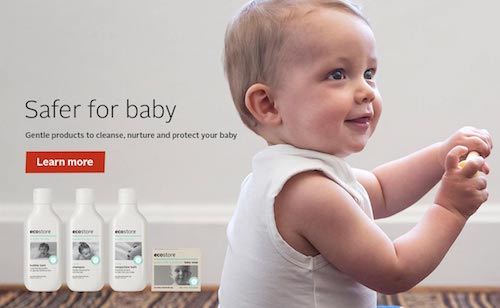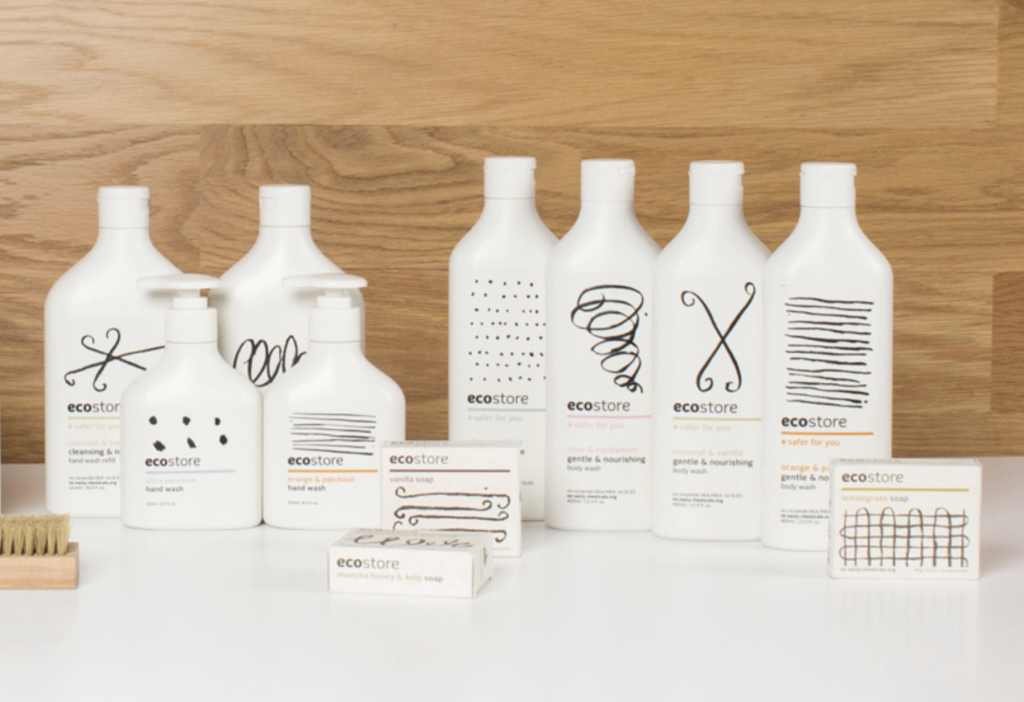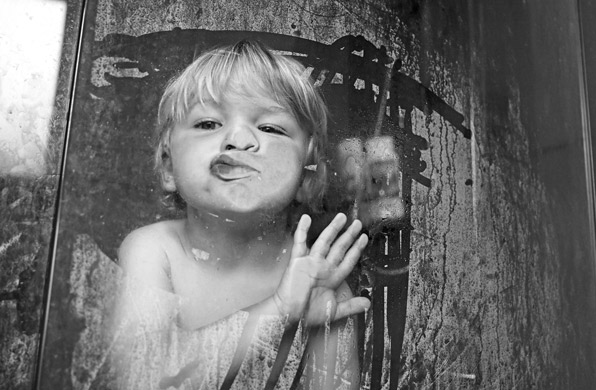Working together is a huge part of creating a better world, because the impact can be so much bigger and more positive. And when companies are making a difference through partnerships, it can inspire us to make decisions that help the environment at the same time. We’ll be profiling some of these cool businesses, and this time it’s eco packaging company Ecoware.
How did you get the idea for Ecoware?
Ecoware was inspired by a dream to create packaging with principles. After some eye-opening moments in an early career in event management, we realised the need for better alternatives. James was coordinating large outdoor events, working with councils and waste management service providers. It was that ‘ah-ha’ moment when we realised there had to be a better solution.
We [business partners James Calver and Alex Magaraggia] are childhood mates and share a passion for business, so we decided to pursue an authentic, purpose-led brand to address the impending waste and plastic pollution problem. We believed we could make a difference, so we challenged ourselves to change the world.
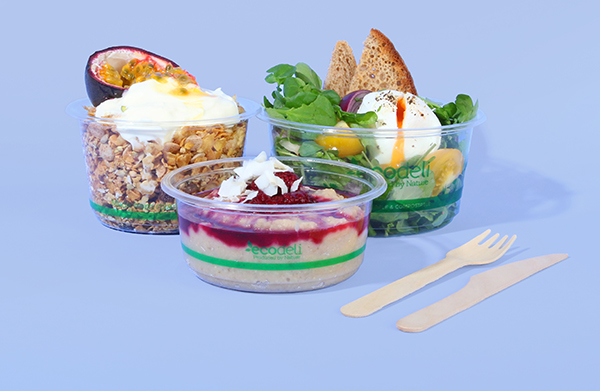
How big is the environmental problem you’re trying to solve?
The study of landfills is a relatively recent endeavour, but it is increasingly obvious that the scale of our plastic waste problem is decent. Globally, it is estimated that only 14% of plastic is recycled and 32% of plastic packaging escapes collection systems. Disposable cups are particularly problematic with an estimated 1 billion going to landfill each year.
On a national level, it’s difficult to know exactly how much waste to landfill is food or beverage packaging, but The Packaging Forum estimates that 295 million hot and cold cups (including coffee cups) are consumed every year in New Zealand, and it is (still) a common misconception that takeaway coffee cups can be recycled. Little is known about the fossil fuel-based plastic lining that coats the inner wall of takeaway cups. The only end of life option for these cups is landfill. So it’s easy to imagine the large amounts going to landfill, and that is just cups.
Over the last 12 months, we have replaced over 500,000 kgs of oil-based packaging with plant-based packaging. We offer packaging solutions from coffee cups and lids, deli bowls, paper bowls, noodle boxes, cutlery, clear cups, straws and more, designed as a complete alternative oil-based material. We are in a transition phase, the New Zealand composting industry is rapidly evolving and we are at the forefront of education and transformation.
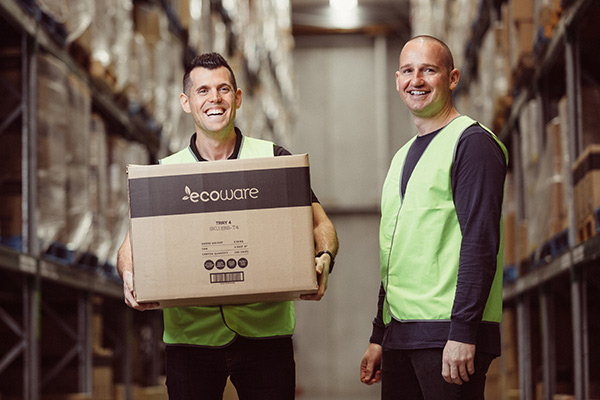
Business partners Alex Magaraggia and James Calver.
How have partnerships allowed you to make a difference bigger than you could on your own?
Collective effort creates bigger change, so we maintain relationships with industry partners including waste collection companies, commercial composting facilities, government organisations and more. Disposal of our products is just as important as the source of raw material, so as an example we partner with collection companies like We Compost, EnviroFert and Kai to Compost to help with the correct disposal. It’s with these partnerships that we can make greater change.
We strive to offer the best on the market, and suppliers of IngeoTM bioplastic, the extraordinary plant-based, commercially compostable resin we use to make our clear cups, straws, lids and lining of our coffee cups. IngeoTM is produced by Nature Works LLC who are constantly pushing the boundaries, and are currently developing the resin to be made not from plants, but from methane in the air.
There are many people and organisations working to improve and develop our industry, that we are proud to work with. But we are always particularly inspired by Kim Renshaw from Beyond The Bin, which is a social enterprise providing training and support and consulting in end of life solutions and waste minimisation at events. She is not only transforming the sustainability of events in New Zealand but is actively involved in research to help develop the compostable packaging industry. She inspires us and to do more and keep the momentum with development.
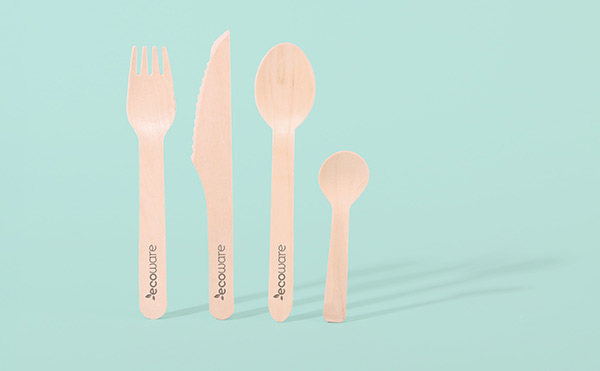
How did you build the network of collection partners?
I think the saying is ‘all good things take time’. It wasn’t really a complex process, but more about being patient. As pioneers of the plant-based packaging industry we spent the first three years of this journey educating potential customers on our new technology. For many, it sounded to good to be true and they looked at us like we were mad. And we were. We truly believed we could change the world, without changing the earth. There is still a long way to go on our mission for a waste free world, but looking back we are proud to say we have created change with a solid network of collection partners.
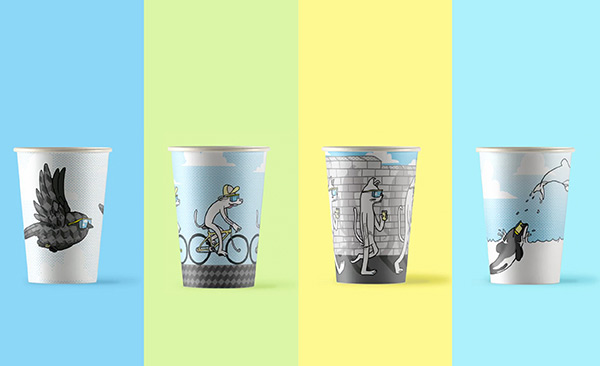
You did a cool collaboration with the artist DSide – how did you choose the causes represented in the art and what were the benefits?
We both recognise the harmful impact we can have on natural resources, and believe that as a nation, we can do better. This was the inspiration behind DSide’s art, keeping things in motion. He designed four limited edition cups and each design is explained here.
Our Maui’s Dolphin is a symbolic and real example of this critical era. Damin (D-Side) spent a long time researching different organisations and found The New Zealand Whale & Dolphin Trust, that works to directly save our endangered dolphin species. We decided that 100% of profits from this EcoCup collection are to go to their organisation.
We’re using takeaway coffee cups as a loud speaker to help spread an important message. So The New Zealand Whale & Dolphin Trust takes the most benefit from the collaboration. For Ecoware and DSide, it’s a labour of love, but we are proud to be the driving force behind it.

